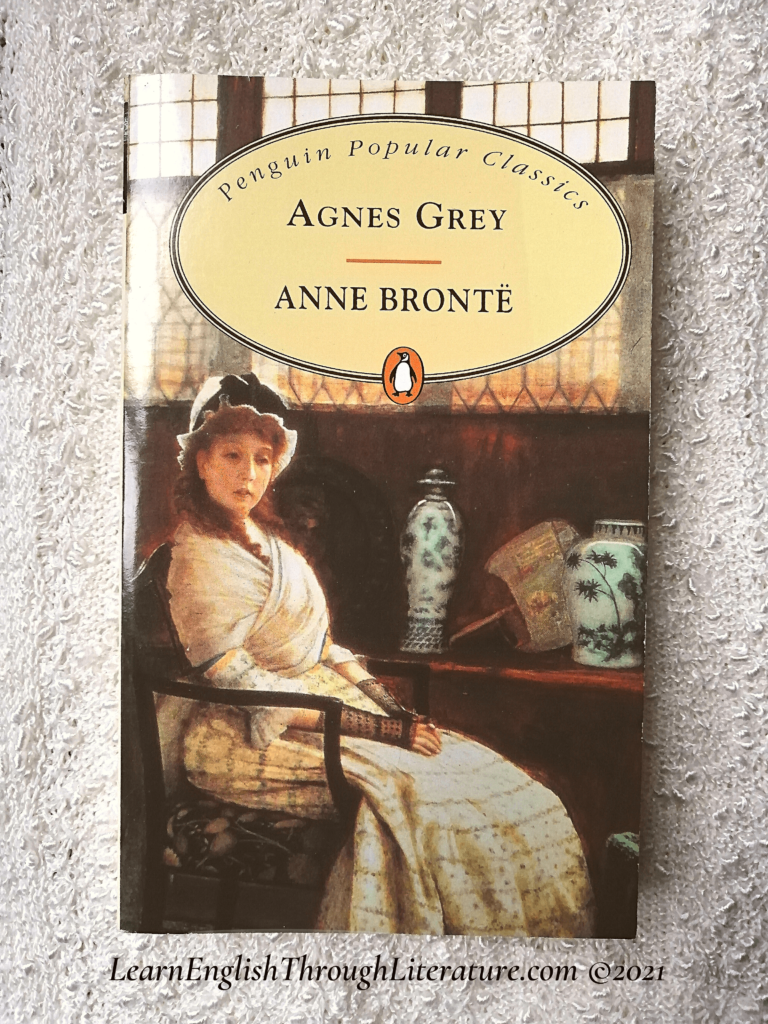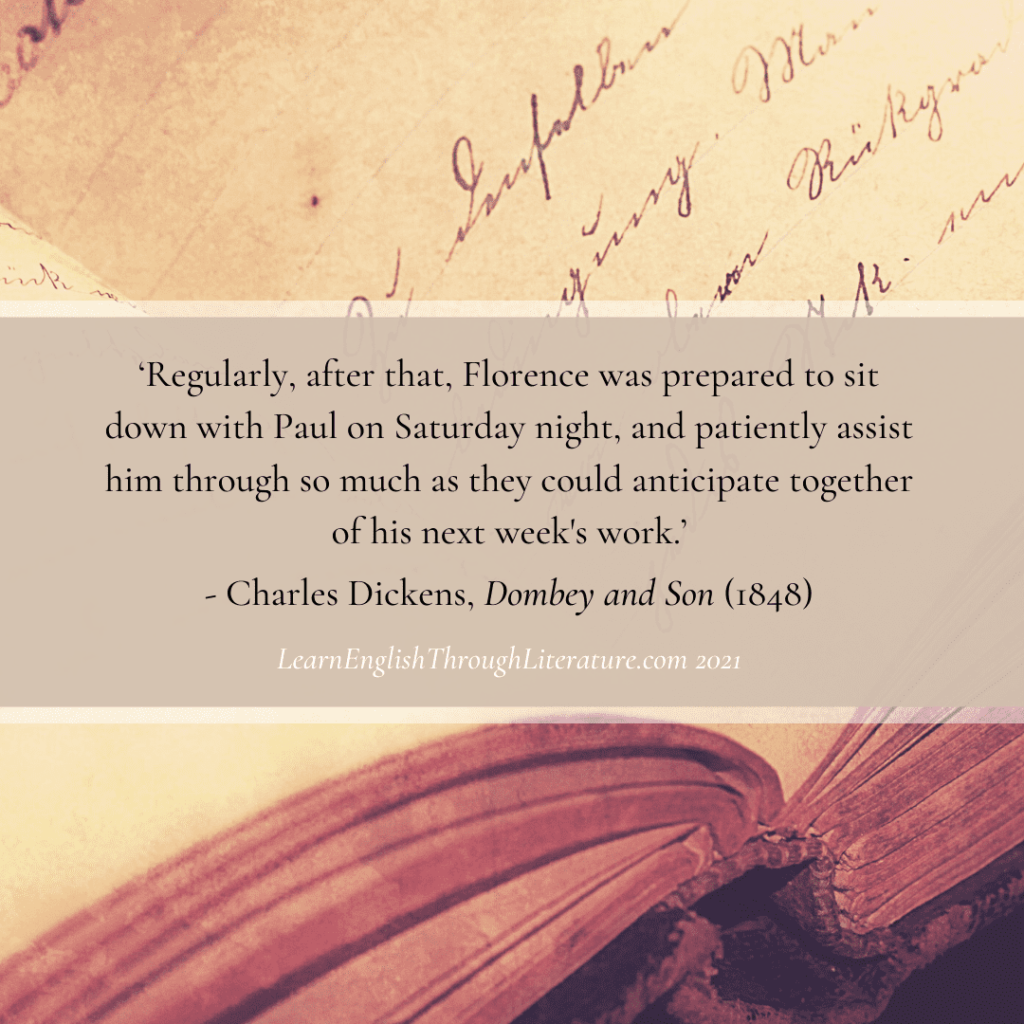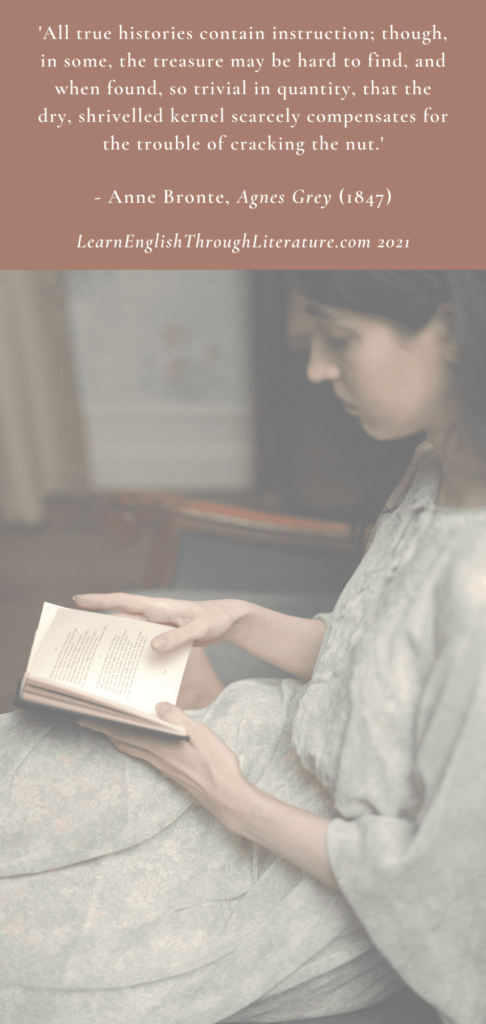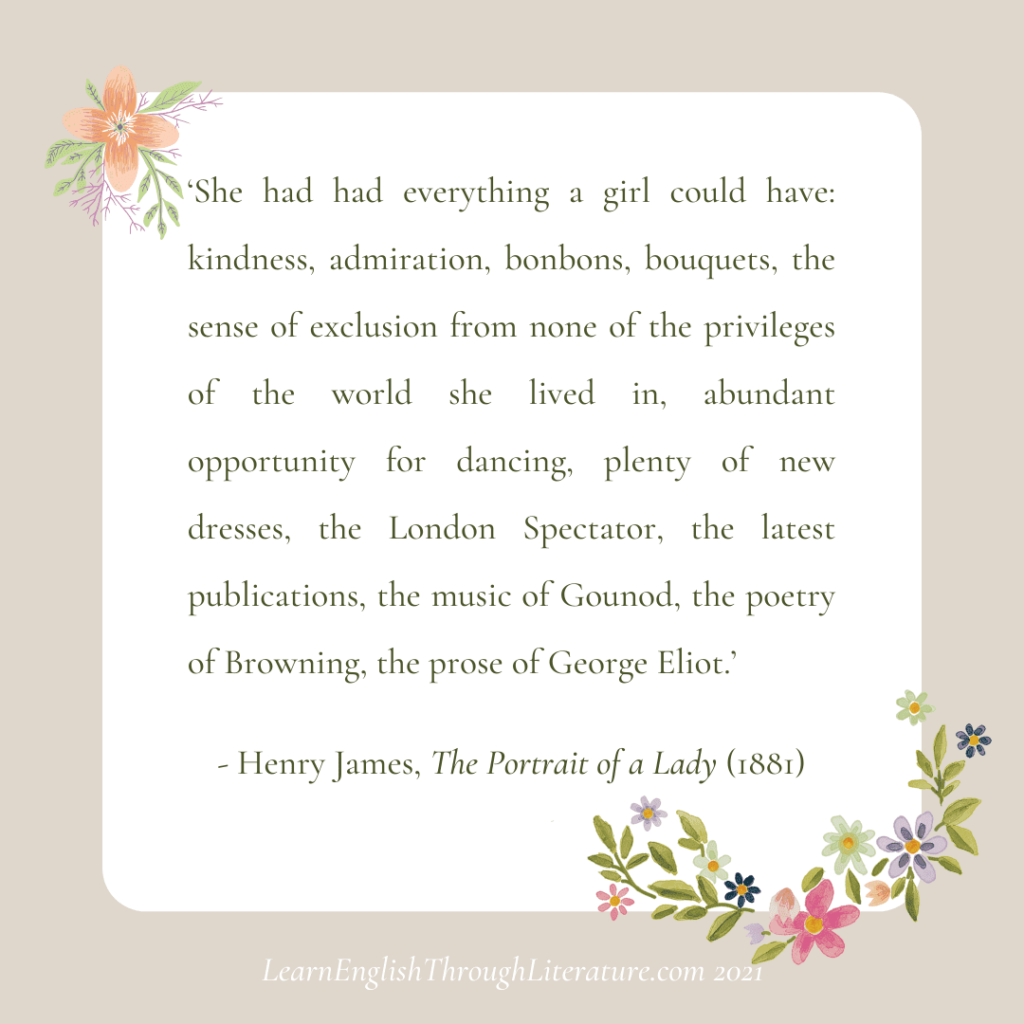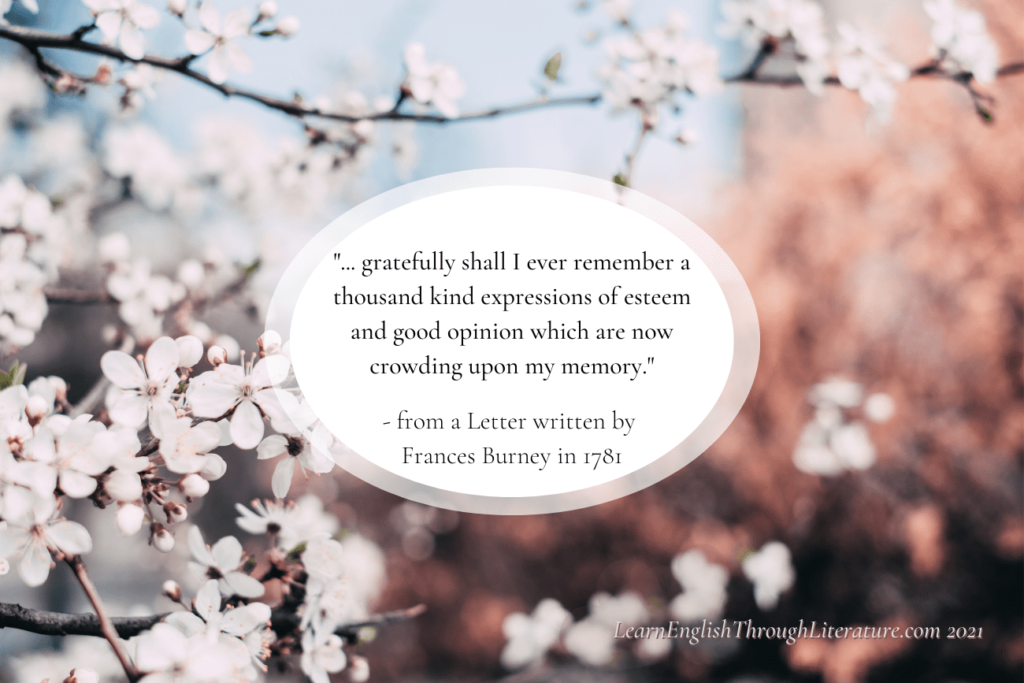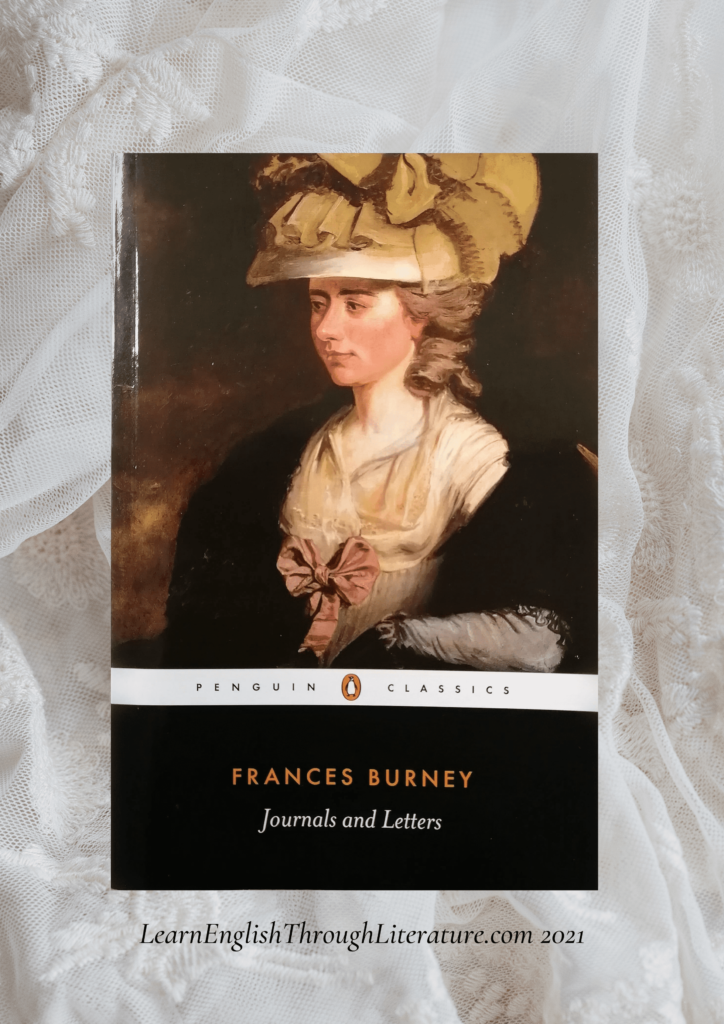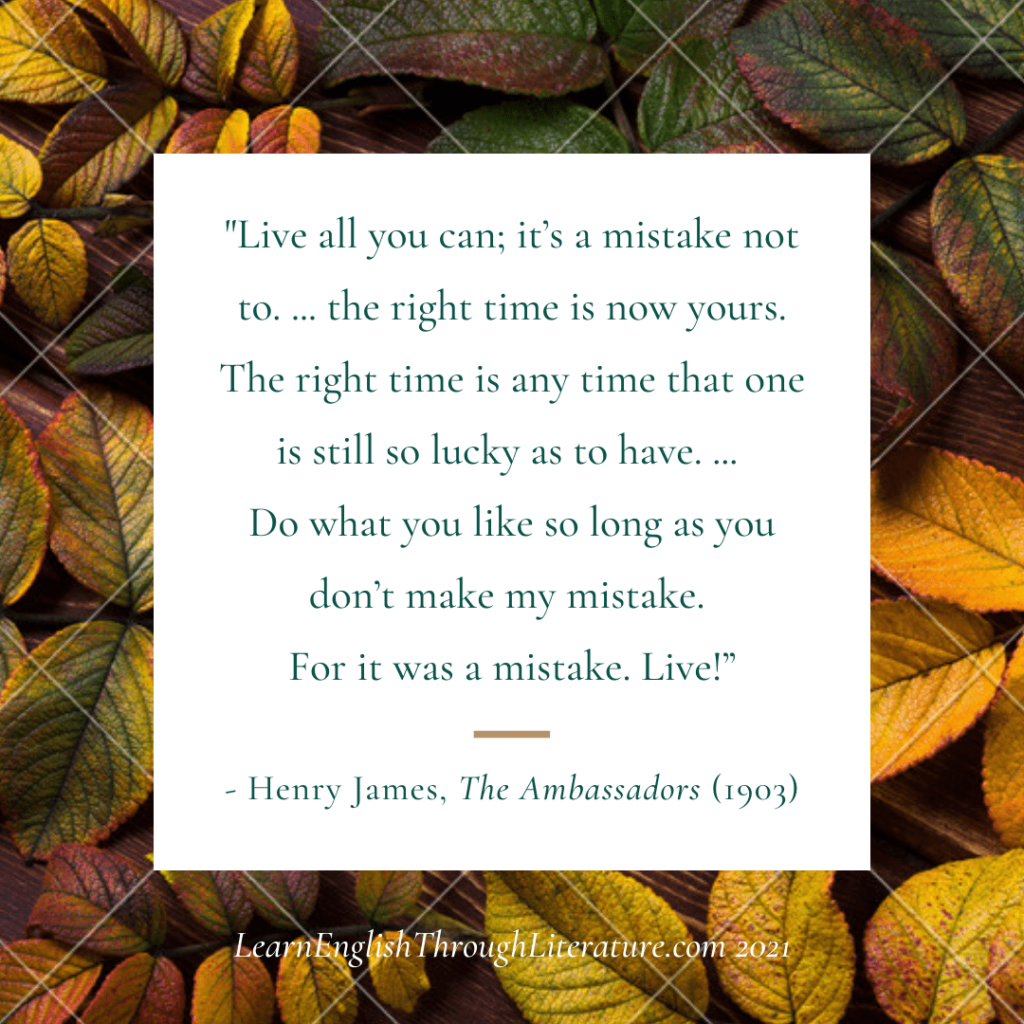Lesson #271: Understanding ‘While’ vs ‘When’ through Anne Bronte’s ‘Agnes Grey’
Last Friday we looked at Anne Bronte’s first novel, Agnes Grey (1847), as a story on morality and education, women’s careers in the Victorian age, and personal character development. (Please read 👉 that Lesson first to get a good picture of what the novel is really about – you wouldn’t like to miss it!) Today […]
Lesson #271: Understanding ‘While’ vs ‘When’ through Anne Bronte’s ‘Agnes Grey’ Read More »

